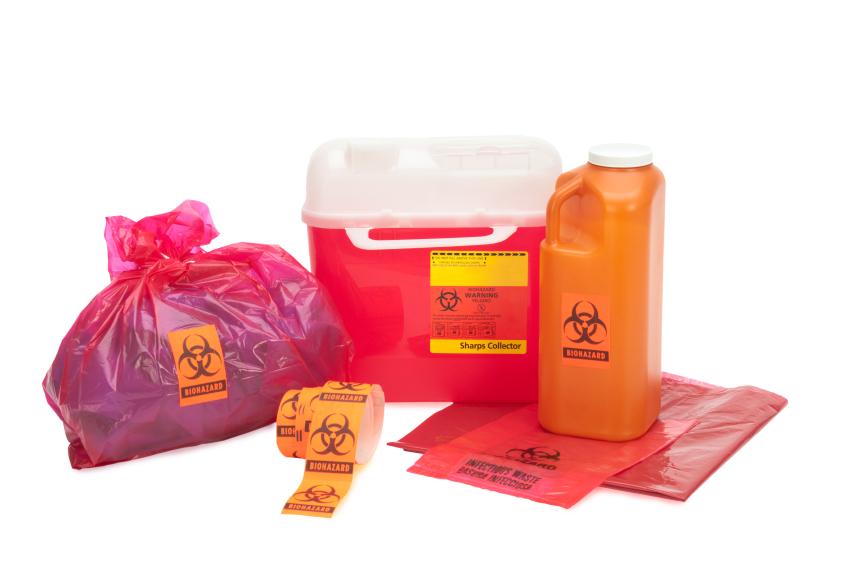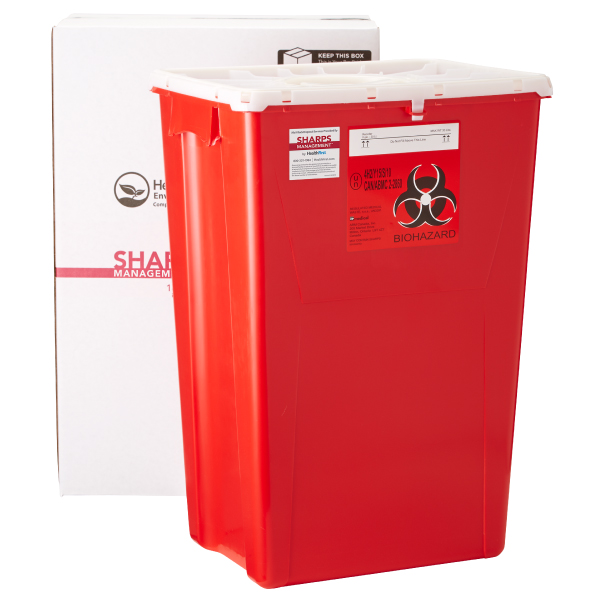Exploring Different Waste Disposal Options for a Cleanser Atmosphere
In the pursuit of a cleaner setting, the monitoring of waste disposal has arised as a crucial centerpiece for sustainable advancement. With a wide range of garbage disposal alternatives offered, varying from conventional garbage dump methods to cutting-edge waste-to-energy technologies, the selection of just how we manage our waste has far-reaching effects for our planet's health. By checking out the different approaches and methods employed in reusing, composting, incineration, landfill administration, and waste-to-energy processes, a much deeper understanding of their impacts and performance can be acquired. The quest for optimum waste disposal approaches that focus on environmental conservation while meeting the needs of an expanding population stays a pressing problem in today's globe.
Recycling Methods
Carrying out effective recycling approaches is vital in decreasing waste and advertising sustainability in our environment. Reusing includes the process of converting waste products right into recyclable challenge prevent unneeded disposal. Among the most usual recycling approaches is worldly recovery, where products like paper, glass, plastic, and metal are gathered, arranged, and refined to develop brand-new products. This process not only preserves natural resources yet also decreases energy intake and greenhouse gas exhausts connected with creating new materials from scrape.
An additional crucial recycling method is composting, which includes breaking down organic waste like food scraps and backyard trimmings right into nutrient-rich dirt. By integrating these numerous reusing techniques into our waste administration practices, we can considerably reduce our ecological impact and relocate towards a much more lasting future.

Composting Techniques
Effective waste administration practices, such as recycling methods, pave the way for a cleaner setting, and now, changing the focus to 'Composting Techniques', we explore lasting ways to break down organic waste for environmental benefit. medical waste removal.
Composting is a natural procedure that changes natural waste, like food scraps and lawn trimmings, right into a nutrient-rich soil change. The secret to successful composting depends on producing the ideal balance of green products, such as fruit and vegetable scraps, and brown materials, like dried out fallen leaves and branches. These materials break down with the assistance of bacteria, breaking down the waste into beneficial compost.
Typical yard composting involves layering organic materials in a bin or stack and consistently transforming the mixture to freshen it. By making use of composting techniques, we can minimize the quantity of waste sent out to garbage dumps while producing a useful item for enriching dirt and supporting plant growth.
Incineration Cons and pros
Incineration, as a garbage disposal approach, provides both benefits and negative aspects that warrant careful consideration in the world of sustainable waste monitoring methods. On the favorable side, incineration can substantially minimize the quantity of waste, decreasing the need for garbage dump space and possibly decreasing greenhouse gas emissions. Incineration additionally permits for the recovery of power via the generation of electrical energy or warm, adding to resource healing. Furthermore, the process can be utilized to ruin hazardous substances, providing a secure approach for taking care of particular sorts of waste that may pose threats to public wellness and the environment if left without treatment.
Nevertheless, there are remarkable drawbacks to incineration. One significant issue is the possible release of damaging contaminants into the air, such as dioxins, hefty metals, and particle matter, which can have adverse results on human wellness and the setting. Furthermore, the high initial investment and operational expenses of incineration facilities posture financial difficulties, making it a much less affordable alternative contrasted to various other waste management strategies. Mindful tracking and regulation are important to reduce these unfavorable influences and make best use of the benefits of incineration as part of a detailed waste administration strategy.
Land Fill Management Approaches
Land fills play a critical role in waste administration and environmental preservation by offering a containment system for the disposal of solid waste products. Effective landfill administration techniques are necessary to mitigate environmental impacts and guarantee the lasting sustainability of these waste disposal websites. One key approach appertains waste compaction to maximize using available area within the landfill (click here). By condensing the waste, the quantity is reduced, permitting even more waste to be fit gradually.
Additionally, the application of daily cover techniques is important in decreasing smells, avoiding clutter, and reducing the destination of pests. Covering the disposed waste at the end of each day assists to consist of smells and stop prospective environmental contamination. Furthermore, the surveillance of land fill gas exhausts and leachate levels is critical in making certain that environmental standards are met and that any type of potential risks to bordering ecological communities are decreased.

Waste-to-Energy Technologies
Among the innovative approaches to lose management includes utilizing Waste-to-Energy technologies to link transform strong waste right into usable power resources. Waste-to-Energy (WtE) technologies include a variety of processes that aim to draw out power from waste products with thermal, chemical, or organic ways. This conversion procedure not only lowers the quantity of waste that winds up in land fills but likewise produces useful energy resources such as electrical energy, heat, or biofuels.
There are a number of techniques of Waste-to-Energy conversion, including pyrolysis, incineration, and gasification. Incineration involves shedding waste at heats to produce warmth and power. Gasification transforms waste right into a syngas, which can be utilized for power generation or chemical manufacturing. Pyrolysis breaks down organic products utilizing heats in the lack of oxygen, generating char, gas, and bio-oil.
Carrying out Waste-to-Energy technologies can assist minimize ecological problems connected with conventional garbage disposal approaches while simultaneously supplying a sustainable energy resource. Careful factor to consider should be given to exhausts control and making sure the sustainability of feedstock supplies for these technologies to be really advantageous for a cleaner setting.

Final Thought
Finally, checking out various garbage disposal choices such as recycling, composting, incineration, garbage dump monitoring, and waste-to-energy innovations is necessary for promoting a cleaner environment - click here. Each technique has its very own benefits and difficulties, but by making use of a combination of these approaches, we can function in the direction of lowering the amount of waste that winds up in land fills and ultimately add to an extra sustainable future for generations to find
With a wide variety of waste disposal choices offered, ranging from conventional landfill approaches to innovative waste-to-energy innovations, the choice of exactly how we handle our waste has significant effects for our world's health. medical waste removal near me.Incineration, as a waste disposal technique, presents both benefits and disadvantages that merit cautious factor to consider in the realm of lasting waste administration techniques.Garbage dumps play a crucial function in waste administration and environmental conservation by providing a control system for the disposal of strong waste materials. By compacting the waste, the volume is decreased, enabling for more waste to be suited over time
One of the ingenious methods to waste management includes taking advantage of Waste-to-Energy innovations to convert solid waste right into functional power sources.